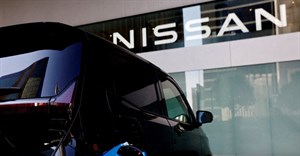Trending
#OrchidsandOnions: Cheapie bucks the trend
Let’s face it, when you’re trying to push sales of an entry-level hatchback car, which has one attractive feature, price – then you don’t want to pretend that it is anything else other than good value.
In effect, you turn your back on “traditional” advertising methods and don’t try to put lipstick on a pig. So, you do anti-advertising advertising.
And that is what Nissan has done quite cleverly with a series of ads for its Datsun Go, an inoffensive little car which has been selling well because it offers many up-and-coming youngsters true mobility for the first time in their lives.
The different executions all feature a seeming lecture on what constitutes good advertising.
Don’t make it complicated; make a big noise; remember the average person loses interest in an ad after 5.3 seconds.
In each case, the ad does exactly the opposite. The most bizarre one consists of a man who emerged from behind a tethered blue balloon and proceeds to then orbit it, looking like a trussed up Christmas turkey. All the while, he is repeating that you can get into a Datsun Go for as little as R1,899 a month.

The ad then goes on to say: We shouldn’t be telling you this. Then follows: Please don’t go to datsun.co.za to find out more.
It’s got a crazy feel, rather like some of the bizarre stuff you see on social media platforms like Instagram or TikTok … and because of that will appeal to those same audiences who, unsurprisingly are the target market for the Go.
Weird, but it works. So Datsun you get an Orchid from me. And, please, can someone extract that ear worm from my ear … that irritating music from this ad won’t get out of my head. Mind you, I remember the brand.
One of the week’s biggest Twitter debates (which generally are the intellectual equivalent of candy floss) centred around what must be one of the cleverest bits of social media marketing I’ve yet seen.
British cereal food Weetabix generated millions of views, retweets and ignited a global frenzy which went beyond Twitter and even into the austere realm of the UK Houses of Parliament.
Its wheat-based breakfast biscuits (known as Weet-bix in this country) were pictured covered with baked beans. The tweet asked why bread should have all the fun and people should try something different with their favourite breakfast food.
Within minutes, the avalanches of replies and retweets began – but what was interesting was how many household name brands joined in the fun themselves.
Nando’s UK kicked off by asking “you all right, hun?” and offering to counsel Weetabix in a direct message. KFC UK, a Nando’s rival, jumped in to suggest the two chicken fast food franchises cast aside their differences and prosecute this under the Geneva Convention … and the banter between the two of them kicked on from there.
It was not only brands which got caught up in the excitement and humour – everybody from small post offices to police constabularies around the UK weighed in with their cheeky comments.
The US Embassy in London tweeted that this sort of development was not what it had in mind when it came to international cooperation (presumably because Weetabix is quintessentially British and baked beans a signature American dish). Quick as a flash, though, the British Embassy in Washington DC chirped back:
“Strong opinion from the nation which makes tea in a microwave.”
The lesson for modern marketers is that humour, done properly, is infectious and can help build your brand. If nothing else, the whole world was reminded of Weetabix’s existence. Other brands also used the opportunity to piggyback on the exposure, positioning themselves as having a sense of humour and punting their own offering in the process.
Harrods showed how the combination should be pulled off, as a luxury dish, with a dusting of white truffle.
We got you @weetabix @heinzuk. But make it luxury, serve with a delicate dusting of white truffle. pic.twitter.com/U4xXXfXCKU
— Harrods (@Harrods) February 11, 2021
The social media person/people responsible for Weetabix deserves an Orchid. I wonder if that could ever happen in South Africa – or are many of our brands too uptight and self-conscious to let their hair down and take a chance?
It’s a risky thing to do … but it can pay off handsomely.


















